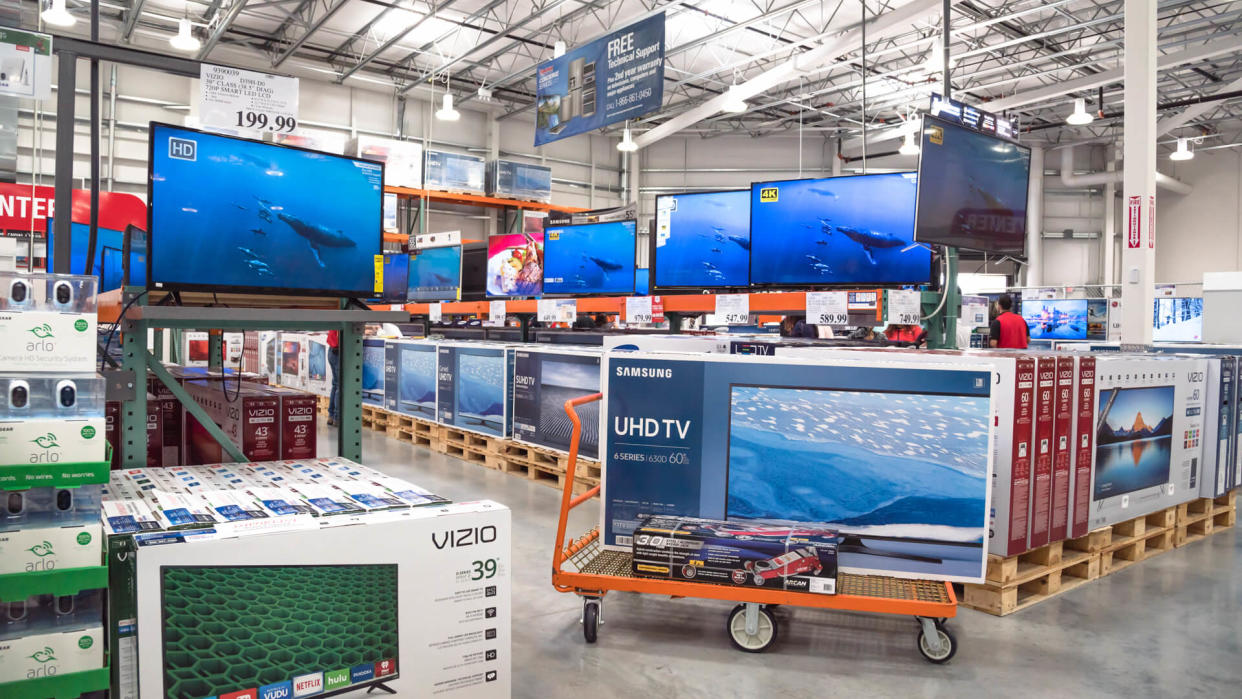Avoid Buying These High-End Electronics That Could Break Down in 5 Years

Unfortunately, many of the common electronics that we rely upon to learn, work, play and communicate with all come with expiration dates. While it’s hard to know exactly when and how our devices will give out –though we can only hope it’s not just as we’re about to learn who the killer is in our audiobook, defeat the villain at the final level of gameplay, or finish a report — we can expect that many of them won’t last beyond five years.
Related: 8 Best New Items at Five Below in January
Read: 3 Things You Must Do When Your Savings Reach $50,000
Here are six to be wary of:
1. Smartphones
Though smartphones touch almost every aspect of our daily lives, from email and social media to the all-important pet photos and videos, they don’t seem to last terribly long. According to USA Today, the average lifespan for a smartphone is roughly 2.5 years. While high-end brands like iPhones can potentially make it about eight years, concerns about longevity set in around four years. A Samsung smartphone might only be usable for three to six years.
As Anup Kayastha, Founder of Serpenst, explains it, high-end smartphones may come with a lot of bells and whistles, but they also come with a lot of updates and upgrades that can make older versions tap out faster.
2. Laptops
While some get lucky and can use around the same laptop for nearly a decade, the average lifespan for most laptops is roughly about four to five years. Corey Donovan, President of IT firm Alta Technologies told Business Insider that battery life is typically the culprit behind these shortened lifespans. Unfortunately, many modern laptops don’t make replacing batteries easy.
For average users, Kayastha recommends a mid-tier laptop or even a tablet to get similar usage for a lower price. “Tech isn’t just about having the latest and greatest,” he says. “It’s about finding what works for you without breaking the bank.”
3. High-Definition TVs
Film buffs and TV fans can pour big bucks into getting high-definition TVs with the widest screens possible. However, many high-definition TVs might be around for a good time, not a long time. The Home Technology Association recently shared that a lot of TVs start to show signs of age at the five-year mark, due in part to the accelerated rate of resolution jumps from 4k to 8k to 16k.
This news doesn’t surprise Nathan Jacobs, Security Analyst at the Money Mongers Inc. “Those cutting-edge, ultra-high-definition TVs offer impressive specs, but much of today’s media content doesn’t fully utilize those capabilities anyway,” he said. “A solid, reasonably-priced HDTV will suit most people’s viewing needs.”
4. Video Game Consoles
It is an exciting time to be a gamer, what with the variety of high-end gaming consoles for sale. However, the speed of advancements in 3D graphics, processing and interactive features might just make today’s platform of choice into tomorrow’s addition to the recycling bin. “State-of-the-art [consoles] like the Playstation 5 or Xbox Series X deliver extraordinary gaming experiences today. But new, improved models are likely coming in the next couple of years that’ll outshine them,” explains Mervyn O’Callaghan, Co-Founder and CEO of CameraMatics.
O’Callaghan recommends that gamers on a budget look to cloud-based gaming services like Google Stadia or NVIDIA GeForce Now for top-tier games at a more affordable cost.
5. Smartwatches
Whether you’re training for a marathon or merely power-walking around the mall to meet your health goals, many rely on smartwatches to tell how many steps are being taken in a day — along with everything else, from breaking news to the weather. Unfortunately, some smartwatches might not last beyond two or three years. Wellness influencers and users in community forums have expressed concerns that their devices don’t last as long as they’d like.
6. Virtual Reality Headsets
Learn: The Single Best Thing To Buy at Costco in January 2024
There was a time when it seemed as if we were going to spend hours upon hours in the world of virtual reality as a futuristic form of home entertainment. Well, that vision of large-scale virtual reality never fully materialized — making some of the more expensive virtual reality headsets on the market already obsolete.
More From GOBankingRates
I'm a Bank Teller: Here Are 10 Mistakes You Are Making With Your Banking
Use This Checklist To See Whether Your Bank is Costing You a Lot of Money
One Strategy Everyone With a Credit Card Balance Should Consider
This article originally appeared on GOBankingRates.com: Avoid Buying These High-End Electronics That Could Break Down in 5 Years
